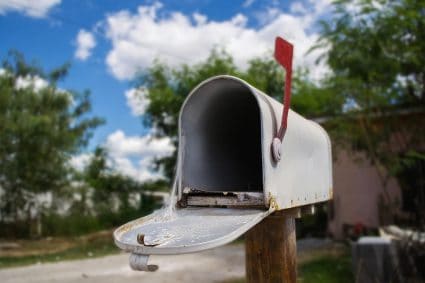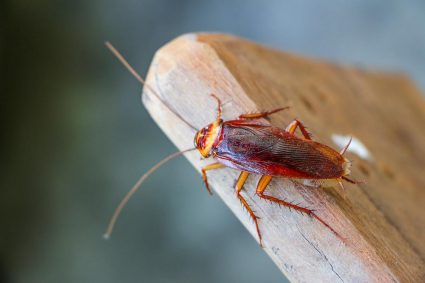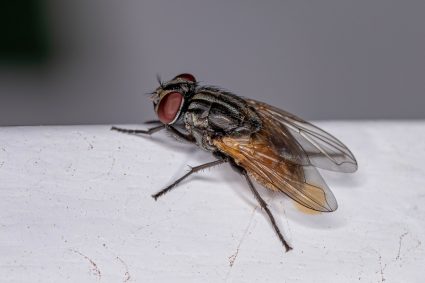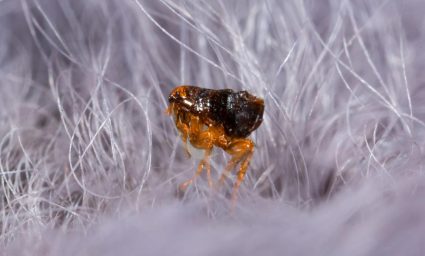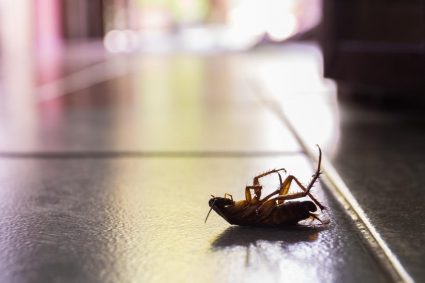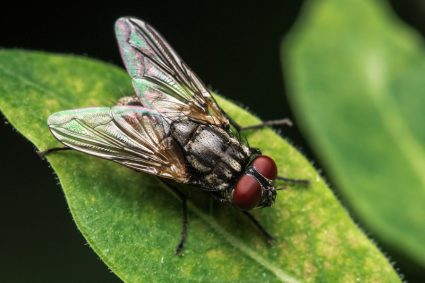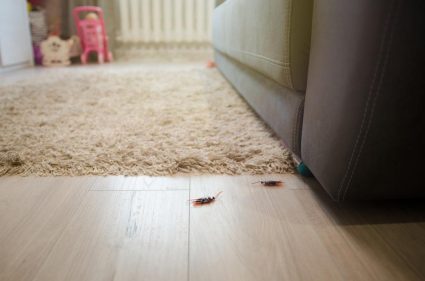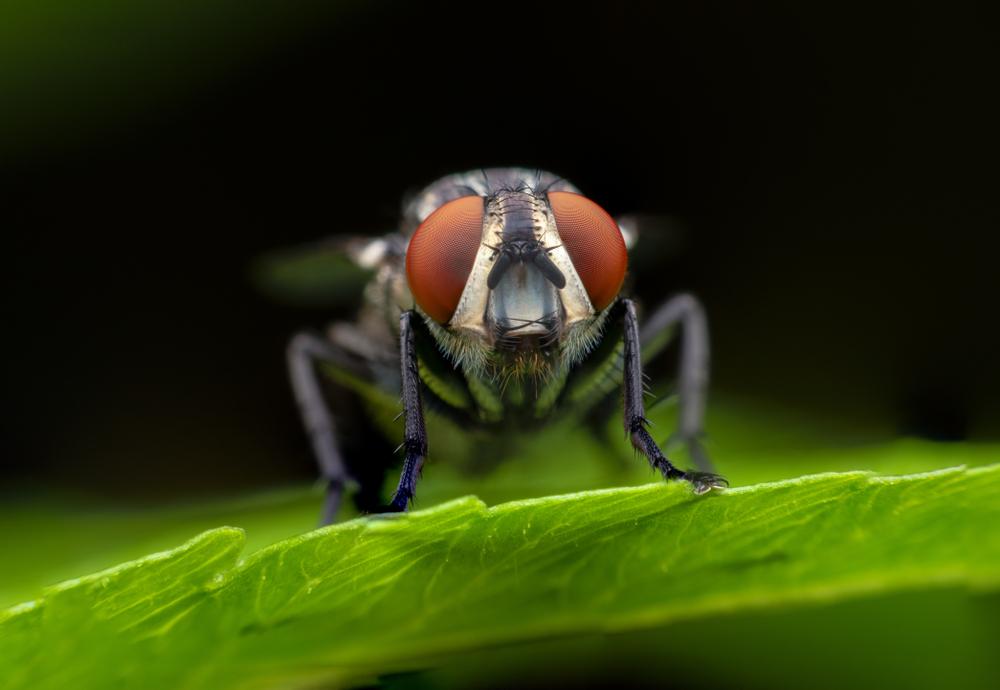
Fruit flies are a common household nuisance, especially during the warmer months. These tiny insects are attracted to ripe, rotting, or decayed food, and can multiply quickly, making them difficult to control. While there are many methods to rid your home of these pests, one question that often arises is: does lavender kill fruit flies?
Lavender: A Natural Repellent, Not A Killer
To answer this question directly, lavender does not kill fruit flies, but it does act as a potent deterrent. The strong scent of lavender is overpowering to fruit flies, making it an effective natural repellent. Lavender contains phytochemicals such as linalyl acetate, linalool, tannins, and caryophyllene, which can cause nervous system damage in fruit flies if ingested in large amounts.
How Does Lavender Repel Fruit Flies?
Lavender works as a fruit fly deterrent due to its strong scent, which fruit flies find unpleasant and overpowering. Here are some ways you can use lavender to keep fruit flies at bay:
- Lavender essential oil spray: Mix ten drops of lavender essential oil with hot water in a spray bottle. Spray this mixture in areas where fruit flies are common.
- Lavender-infused dishcloths or cotton balls: Soak dishcloths or cotton balls in lavender oil and place them around your kitchen or near fruit bowls.
- Dried lavender or lavender plants: Place dried lavender or lavender plants around your home, particularly in your kitchen, to deter fruit flies.
- Lavender in combination with other scents: Fruit flies dislike the smell of basil, peppermint, eucalyptus, lemongrass, and clove. Use these fragrant herbs or essential oils in combination with lavender for a more effective deterrent.
Scientific Evidence Supporting Lavender’s Effectiveness
Several scientific studies and research support the claim that lavender can repel fruit flies. A study published in the National Center for Biotechnology Information (NCBI) found that lavender oil effectively repelled Drosophila suzukii, a species of fruit fly. Another study conducted in 2014 found that lavender repelled fruit flies more effectively than other herbs tested.
Other Pests That Lavender Can Repel
In addition to fruit flies, lavender can also deter other pests such as fleas, moths, mosquitoes, and flies. The strong scent of lavender is generally disliked by these insects, making it an effective natural repellent.
Potential Risks Of Using Lavender
While lavender is a natural and effective deterrent for fruit flies, it’s not without its potential downsides or risks:
- Allergic reactions: Some people might be allergic to lavender or its essential oil. Always test a small amount of lavender oil on your skin before using it extensively.
- Limited effectiveness: While lavender can help deter fruit flies, it may not be enough to completely eliminate them if there are other strong attractants present.
- Potential harm to beneficial insects: Although lavender is generally safe for beneficial insects, it’s possible that it could have unintended effects on other beneficial insects.
Lavender vs. Other Natural and Chemical Methods
Compared to other natural methods, lavender is generally considered safer as it is non-toxic and can be used in food preparation areas. However, its effectiveness in comparison to chemical insecticides is not well-documented. Chemical insecticides can be toxic but may provide more effective and long-lasting control of fruit flies.
Using Lavender As A Preventive Measure
Lavender can also be used as a preventive measure against fruit fly infestations. By strategically placing lavender plants or lavender-infused items around your home, you can deter fruit flies from invading your space.
Most Effective Ways To Get Rid Of Fruit Flies
While lavender is a great deterrent, it’s important to note that it’s just one piece of the puzzle in fruit fly control. To effectively rid your home of these pests, consider the following methods:
- Apple cider vinegar and dish soap trap: This trap lures fruit flies with vinegar and traps them with dish soap.
- Beer or wine trap: Stale beer or wine can also lure and trap fruit flies.
- Liquid soap and water trap: A bowl of soap water placed under a light can attract and trap fruit flies.
- DIY fruit fly traps: Homemade traps using apple cider vinegar, dish soap, and a paper cone can be very effective.
- Store-bought fruit fly traps: These traps use a food-based lure to attract and trap fruit flies.
Remember, maintaining a clean environment is the most effective way to prevent a fruit fly infestation. Dispose of overripe or rotting produce promptly, clean up spills as soon as they happen, and take out the garbage regularly to keep your home fruit fly-free.
In conclusion, while lavender does not directly kill fruit flies, it can effectively repel them and help prevent an infestation. Combined with other fruit fly control methods and good sanitation practices, lavender can be a valuable tool in keeping your home free from these pesky insects.
Frequently Asked Questions
Can I use lavender oil directly on my skin to repel fruit flies?
It’s not recommended to use lavender oil directly on the skin as it can cause irritation or allergic reactions in some people. It’s best to dilute the oil with a carrier oil like coconut or jojoba oil before applying it to your skin.
Can I use lavender to repel other types of flies?
Yes, lavender can also be used to deter other types of flies. The strong scent of lavender is generally disliked by many types of flies, making it an effective natural repellent.
How often should I replace the lavender to keep its effectiveness?
The frequency of replacement depends on the form of lavender you are using. If you are using lavender essential oil, it usually lasts for about a week before it needs to be reapplied. However, dried lavender or lavender plants may need to be replaced every few weeks as their scent fades over time.
Where can I buy lavender plants or lavender essential oil?
Lavender plants and lavender essential oil can be purchased at most garden centers, health food stores, or online.
Is lavender safe to use around pets?
Lavender is generally safe to use around pets. However, some pets may be sensitive to the strong scent of lavender. Always monitor your pets for any signs of distress when introducing new scents into your home.

